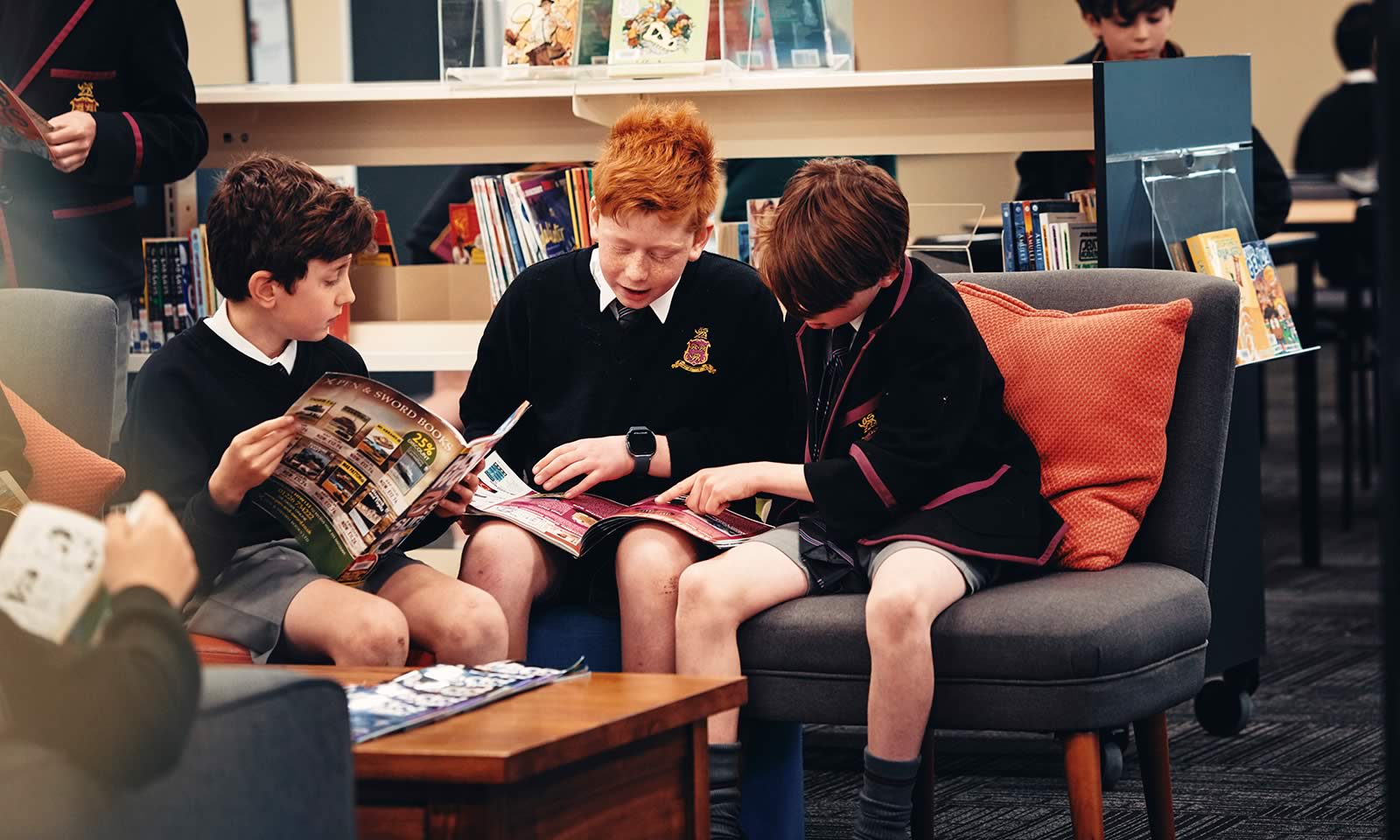Social and emotional development in the Junior years

Our recent Junior School Family/Teacher Conferences were a wonderful opportunity to connect families and teachers after a long and challenging period of time since the Term 1 Welcome Meetings.
The meetings allowed for that important two-way conversation about each student’s progress and their learning goals for the term, while also discussing strategies for families and teachers to support learning.
While the focus of these meetings is often academic progress, they also provide an important opportunity to discuss social and emotional development.
Boys moving through the year groups and age ranges often face individual challenges with behaviour, engagement, motivation and achievement. Developmental changes can be significant and at times parents/carers might feel their son is unrecognisable from the person who lived in the house a few years earlier. As educators we are ready to deal with these challenges and consider the social and emotional development of boys when planning and delivering our curriculum.
Gender differences are significant particularly with developmental milestones and emotional maturity – our approach to teaching boys aims to cater for this. During a recent visit to one of our local all-girls schools I experienced an eye-opening contrast with boys compared to girls. When leaving the school it took a few minutes to register that I was actually walking through the playground at break time due to the calm and quiet playground environment, where girls sat in small groups talking, others walked, some played low intensity games. Minutes later, upon arriving back to our Junior School, I instantly faced what seemed to be dozens of sporting events happening at once. The intensity and high-level energy on show was such a contrast. I seemed to be witnessing world championship handball matches, a football grand final, Olympic level competition on the monkey bar and an NBA basketball match with seconds to go! The contrast between the two schools and genders was an eye opener when witnessed minutes apart.
At school we recognise these differences in socialisation and play in both the playground and the classroom. The stages of development are quite consistent and the timing is predictable, and the needs of the boys at each stage are well catered for by our teachers. There are certainly more challenging year groups than others – that is something we accept as teachers and families also need to prepare for the highs and lows in their son’s development.
In the lower part of the school, parents/carers might be experiencing the challenge of ongoing oppositional behaviour where ‘no’ or ‘why’ are the favourite words. In upper primary, boys are often testing the limits with their relationships, jockeying for social positions, experiencing a higher level of conflict than ever before and possibly displaying a change in engagement levels towards school work.
There’s nothing worrying about these phases of development, but it is important to understand that they exist.
The communication between home and school plays a key role in supporting the boys in a way that is appropriate to their developmental needs. As parents/carers and educators we are all working with the same goal in mind – providing support while the boys are learning to forge healthy relationships, developing an understanding of their self and exploring their full potential.
Mr Stephen Coventry
Head of Junior School
